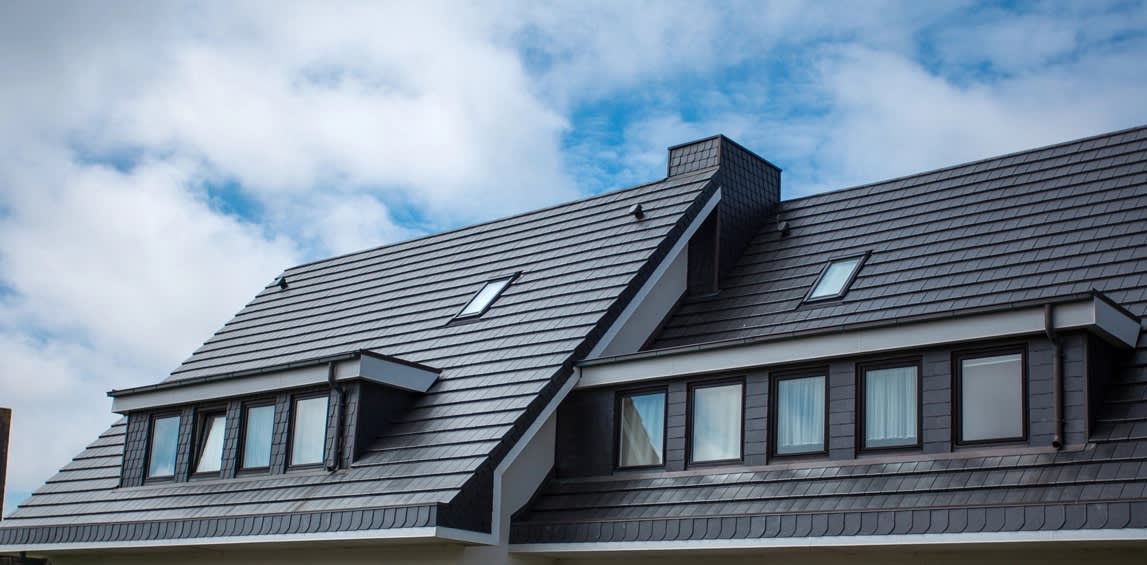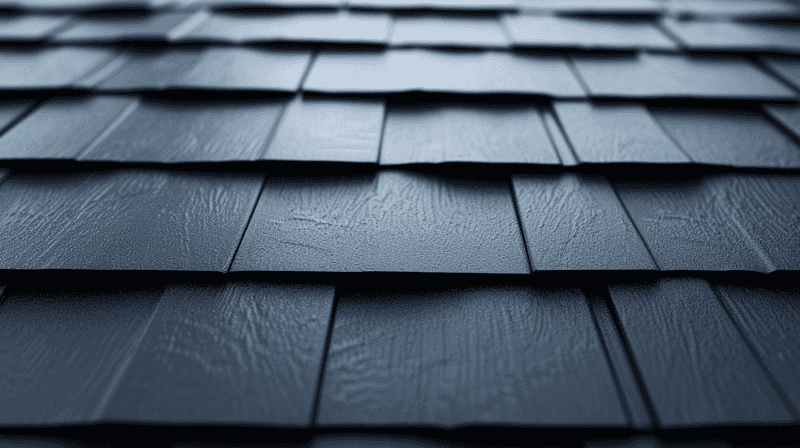6 Reasons to Replace Wood Shake Roofing with Synthetic Shingle Roofing
By Rochelle

Share —
When it comes to roofing materials, wood shake has long been a popular choice for homeowners seeking a natural and rustic aesthetic. However, with advancements in technology and concerns about sustainability, synthetic shingle roofing has emerged as a viable alternative. In this article, we'll explore six compelling reasons why homeowners should consider replacing their wood shake roofing with synthetic shingle roofing.
Durability
Wood shake roofing may have a charming appeal, but it comes with inherent vulnerabilities. Wood is susceptible to rot, mold, and insect infestation, which can compromise the structural integrity of the roof over time. Synthetic shingle roofing, on the other hand, is engineered to withstand the elements, including wind, rain, hail, and UV exposure. With proper installation and maintenance, synthetic shingles can offer superior durability and longevity compared to wood shake.
Fire Resistance
One of the most significant drawbacks of wood shake roofing is its susceptibility to fire. Wood is a combustible material, making it a potential fire hazard, especially in areas prone to wildfires or lightning strikes. Synthetic shingle roofing is typically made from fire-resistant materials such as asphalt, fiberglass, or polymers, offering greater protection against fire damage. By replacing wood shake with synthetic shingles, homeowners can enhance the safety and security of their property.
Environmental Impact
In today's environmentally conscious world, sustainability is a top priority for many homeowners. Wood shake roofing contributes to deforestation and has a significant environmental footprint due to the harvesting and processing of natural wood resources. Synthetic shingle roofing, on the other hand, is often made from recycled materials and can be recycled at the end of its lifespan, reducing waste and conserving natural resources. By choosing synthetic shingles, homeowners can minimize their environmental impact and support sustainable building practices.
Maintenance
Wood shake roofing requires regular maintenance to prevent decay, moss growth, and water damage. This maintenance can be time-consuming and costly, requiring frequent inspections, repairs, and treatments to prolong the lifespan of the roof. Synthetic shingle roofing, however, requires minimal maintenance and is resistant to mold, mildew, and moisture damage. With synthetic shingles, homeowners can enjoy a low-maintenance roofing solution that retains its aesthetic appeal year after year.
Cost-effectiveness
While wood shake roofing may have a lower upfront cost compared to synthetic shingles, it often proves to be more expensive in the long run due to maintenance and replacement costs. Synthetic shingle roofing offers excellent value for money, with lower maintenance requirements and a longer lifespan than wood shake. Additionally, synthetic shingles are available in a wide range of styles and colors, allowing homeowners to achieve the look they desire without breaking the bank.
Aesthetic Versatility
One of the advantages of synthetic shingle roofing is its aesthetic versatility. While wood shake roofing has a distinct rustic charm, synthetic shingles can replicate the look of various roofing materials, including slate, tile, and cedar shake. This allows homeowners to choose a roofing style that complements their home's architecture and design aesthetic. Whether they prefer the classic elegance of slate or the rustic appeal of cedar shake, synthetic shingle roofing offers endless possibilities for customization.
FAQs About Synthetic Shingle Roofing:
What are synthetic shingles made of?
- Synthetic shingles are typically made from a combination of materials such as asphalt, fiberglass, polymers, and recycled materials. These materials are engineered to provide durability, fire resistance, and aesthetic appeal.
How long do synthetic shingles last?
- The lifespan of synthetic shingles can vary depending on factors such as the quality of the materials, installation, and maintenance. However, synthetic shingles typically have a lifespan of 30-50 years or more, making them a long-lasting roofing option.
Are synthetic shingles environmentally friendly?
- Yes, synthetic shingles are often considered more environmentally friendly than traditional roofing materials such as wood shake or asphalt. Many synthetic shingles are made from recycled materials and can be recycled at the end of their lifespan, reducing waste and conserving natural resources.
Do synthetic shingles look like real wood shake or other traditional roofing materials?
- Yes, synthetic shingles are designed to replicate the look of traditional roofing materials such as wood shake, slate, tile, and cedar shake. They come in a variety of styles, textures, and colors, allowing homeowners to achieve the look they desire without sacrificing performance.
Are synthetic shingles resistant to mold, mildew, and algae?
- Yes, synthetic shingles are typically resistant to mold, mildew, algae, and other organic growths. Unlike wood shake roofing, which is prone to rot and decay, synthetic shingles offer superior resistance to moisture damage, ensuring a longer lifespan and lower maintenance requirements.
Can synthetic shingles withstand harsh weather conditions?
- Yes, synthetic shingles are engineered to withstand a wide range of weather conditions, including high winds, heavy rain, hail, and UV exposure. They are often tested to meet industry standards for wind resistance and impact resistance, providing homeowners with peace of mind during severe weather events.
How do synthetic shingles compare in terms of cost?
- While synthetic shingles may have a higher upfront cost compared to traditional roofing materials such as wood shake or asphalt, they often prove to be more cost-effective in the long run. Synthetic shingles require less maintenance and have a longer lifespan, reducing the need for frequent repairs and replacements.
Are synthetic shingles easy to install?
- Yes, synthetic shingles are typically lightweight and easy to install, making them an attractive option for roofing contractors. However, proper installation is crucial to ensure optimal performance and longevity. It's essential to hire a reputable roofing contractor with experience installing synthetic shingle roofing systems.
Conclusion
In conclusion, replacing wood shake roofing with synthetic shingle roofing offers numerous benefits for homeowners, including durability, fire resistance, environmental sustainability, low maintenance, cost-effectiveness, and aesthetic versatility. By making the switch to synthetic shingles, homeowners can enhance the safety, longevity, and beauty of their homes while reducing their environmental impact and long-term maintenance costs. If you're considering a roofing upgrade, synthetic shingle roofing is undoubtedly worth exploring for its superior performance and value proposition.








